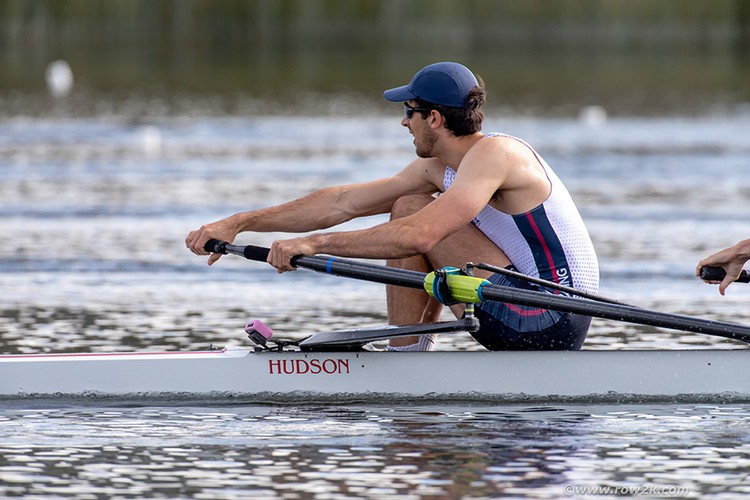
If you're planning to race this season, you've probably already decided which races you'll prioritize and which you'll train through. If you're fortunate enough to have a coach, you most likely have a set training schedule, but if you're on your own (which is how I imagine my audience), you'll be responsible for your own plan. In many ways, that works better as everyone is different and what works for one might not work so well for another. I find that particularly true when it comes to a taper.
I'm aware of three theories on tapering. One is to gradually decrease your workload 5 to 10 days out from your big event. Another is to increase your normal workload 10 to 14 days out and then decrease the load. And a third theory I have heard more recently is simply not to taper at all. The trick is to find which one works best for you. In all three, you want to make sure that you continue to do some race pace work; the question is, how much.

As a master's athlete, we can't always prioritize training to the extent a national team athlete must. Life gets in the way - family and jobs come first. But I think we can use unintended breaks to find out what kind of a taper works best. When you have to take time off or cut back on your work load, what happens when you get back to your regular training schedule? Do you feel energized or sluggish? Do you feel great the first day back or does it take a day or two? Do you feel you just get stronger and stronger everyday as you train and you don't like backing off too much? Paying attention to different scenarios will give you a window into what will best prepare you to race.
If you plan to train through some races, you'll easily be able to see if option 3 works for you - the no taper idea. The other two options take a little more planning, but we don't necessarily want to lighten our workload in the middle of a training cycle just to see if we can find the right taper. Tapering too often will have a negative overall effect as you reduce training time. Using an unplanned break to see how your body reacts might not be an ideal way to find the perfect taper, but it can turn a negative into a positive.
Keep in mind that while a taper affects you physically, there's also a huge mental aspect to it. If you feel in your mind that you're rested and ready to race, that is worth a lot. The body achieves what the mind believes.

If you enjoy and rely on row2k, we need your help to be able to keep doing all this. Though row2k sometimes looks like a big, outside-funded operation, it mainly runs on enthusiasm and grit. Help us keep it coming, thank you! Learn more.
Comments | Log in to comment |
There are no Comments yet
| |
- Bont Rowing
- Calm Waters Rowing
- Concept 2
- Craftsbury Sculling
- The Crew Classic
- CrewLAB
- Croker
- Durham Boat Co.
- Empacher
- Faster Masters
- Filippi
- Fluidesign
- h2row.net
- HUDSON
- Live2Row Studios
- Nielsen-Kellerman
- Oak Ridge RA
- Peinert Boat Works
- Pocock Racing Shells
- Race1 USA
- RowKraft
- Rubini Jewelers
- Vespoli USA
- WinTech Racing
- Bont Rowing
- Calm Waters Rowing
- Concept 2
- Craftsbury Sculling
- The Crew Classic
- CrewLAB
- Croker
- Durham Boat Co.
- Empacher
- Faster Masters
- Filippi
- Fluidesign
- h2row.net
- HUDSON
- Live2Row Studios
- Nielsen-Kellerman
- Oak Ridge RA
- Peinert Boat Works
- Pocock Racing Shells
- Race1 USA
- RowKraft
- Rubini Jewelers
- Vespoli USA
- WinTech Racing

















